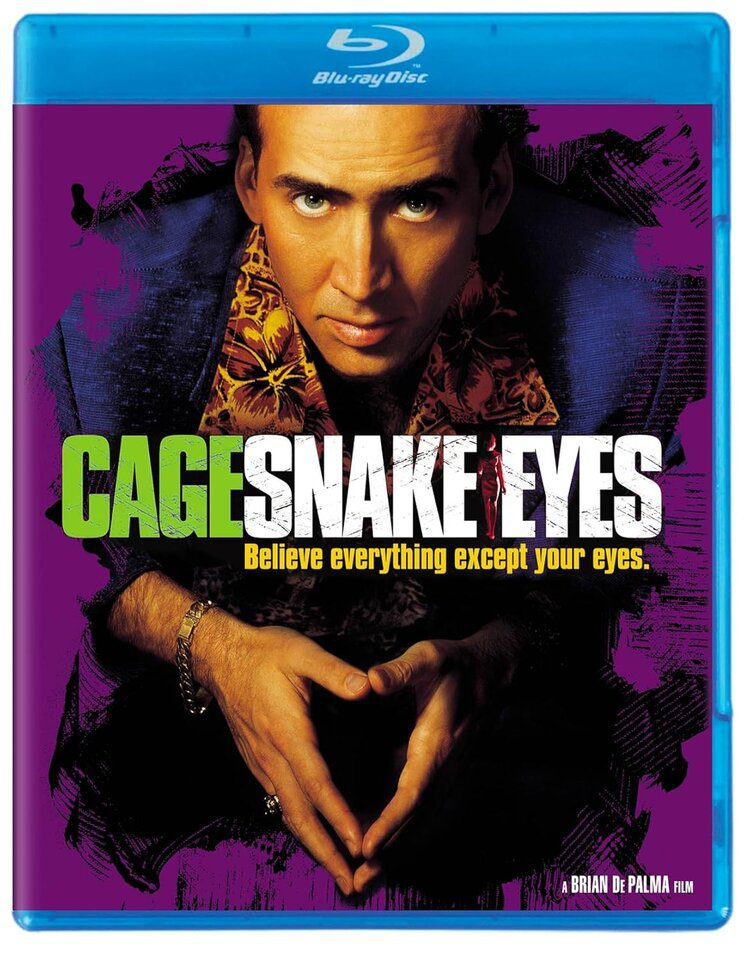
Snake Eyes is a lame, if visually dazzling, Brian De Palma movie. Narratively, this thing’s a hot mess.
In an ode to Touch of Evil (dir. Orson Welles), it starts with a single-take tracking shot that follows flashy, loudmouth detective, Rick Santoro (Nicolas Cage), as he struts into an Atlantic City casino on fight night. Cage oozes pure, unfiltered Cage; he’s electric. Embodying Santoro (who’s hardly the shiniest moral compass around) with a flamboyant, almost desperate bravado, he (besides De Palma’s visual panache) is the only other reason to see this movie.
Buy Snake Eyes Blu-rayThe plot revolves around a political assassination. Some see a conspiracy; few understand it. And the casino becomes an endless locked room (outside, a storm rages). With his bag of tricks—overhead shots, split screens, and shifting POV—De Palma is well-equipped to immerse us in the mystery of ‘whodunit.’ The camera moves this film. De Palma flexes. He’s a master visual storyteller.
But as it progresses, the narrative slips further and further into absurdity. This undercuts any drive the setup had. By the time we realize how ridiculous it’s gotten, we’re uninvested. Where’s that dark satiric eye De Palma used to weaponize so well? The screenplay, by David Koepp, starts strong but flubs the payoff.
Snake Eyes is not a total dud. If nothing else, it’s still a virtuoso exercise in style, and Cage leans in hard on his performance. It’s a neat-looking movie that stars one of the most charismatic oddball actors of our time. About any deeper themes of corruption, deception, or the shifting, cracked nature of truth, a small voice in my head whispered just one word. “Horseshit.”
If, like me, you’re a die-hard De Palma fan and a Cage connoisseur, you could do worse with 98 minutes. Just don’t expect Snake Eyes to sit alongside Dressed to Kill or Blow Out.
The Kino Lorber Blu-ray is a brand-new HD master taken from a 16bit 4K scan of the original 35mm camera negative. It does justice to the film’s visual flair. Extras are scarce, though: a theatrical trailer, and commentary by historians Steve Mitchell and Nathaniel Thompson.